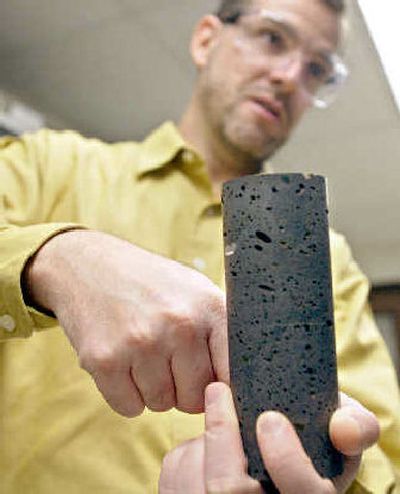Competitive bids planned for laboratory

YAKIMA – For the first time in 41 years, the federal government will seek competitive bids for the contract to manage the Pacific Northwest National Laboratory, a national science laboratory in Richland, the Department of Energy announced Thursday.
Battelle Memorial Institute, a nonprofit group based in Columbus, Ohio, has managed and operated the laboratory since its inception in 1965 under a series of extended contracts.
With an annual budget of more than $725 million, the laboratory’s research areas include science and environment, energy, defense and national security.
News that the government will seek competitive bids follows criticism of a recent high-profile research error at the laboratory related to cleaning up the highly contaminated Hanford Nuclear Reservation.
However, Energy Department officials said the decision to seek bids was not a reflection of Battelle’s performance, but rather a prudent management decision.
“The competitive process is the best method to provide the American taxpayer an optimum management team for PNNL, one of our outstanding national laboratories,” Raymond L. Orbach, director of the Energy Department’s Office of Science, said in a statement.
Battelle’s current five-year contract expires Sept. 30, 2007.
“We are absolutely, positively, and vigorously going to bid. This contract is an essential part of our portfolio. We have a terrific track record and have every intention of continuing that for the next 40 years,” Bill Madia, Battelle executive vice president for laboratory operations, said in a telephone interview from Columbus. Madia served as laboratory director from 1994 to 2000.
The laboratory conducts nearly 60 percent of its research for the Energy Department, 18 percent for the Department of Homeland Security and 7 percent for the Defense Department. Private work accounted for 11 percent of the laboratory’s budget, followed by a mix of research for other national agencies.
In 2005, 11 percent of the work conducted at the laboratory for the Energy Department, or an estimated $76.5 million, was related to Hanford, a nuclear weapons facility created during World War II as part of the top-secret Manhattan Project to build an atomic bomb.
But the laboratory was criticized last summer after the Energy Department was forced to halt proposed shipments of radioactive waste from Ohio to Hanford, after the laboratory provided inconsistent data about the environmental effects of waste disposal there.
The discrepancies were uncovered as part of a lawsuit filed by Washington state to block waste shipments to Hanford.
Since the errors were uncovered, Madia said, Battelle has adopted a more vigorous, independent review of its research to ensure quality assurance both at the laboratory and at Battelle headquarters.
“When you find an issue like this … you look around and you raise your expectations broadly,” Madia said, stressing that there was no correlation between the errors and the government’s decision to bid out the contract.